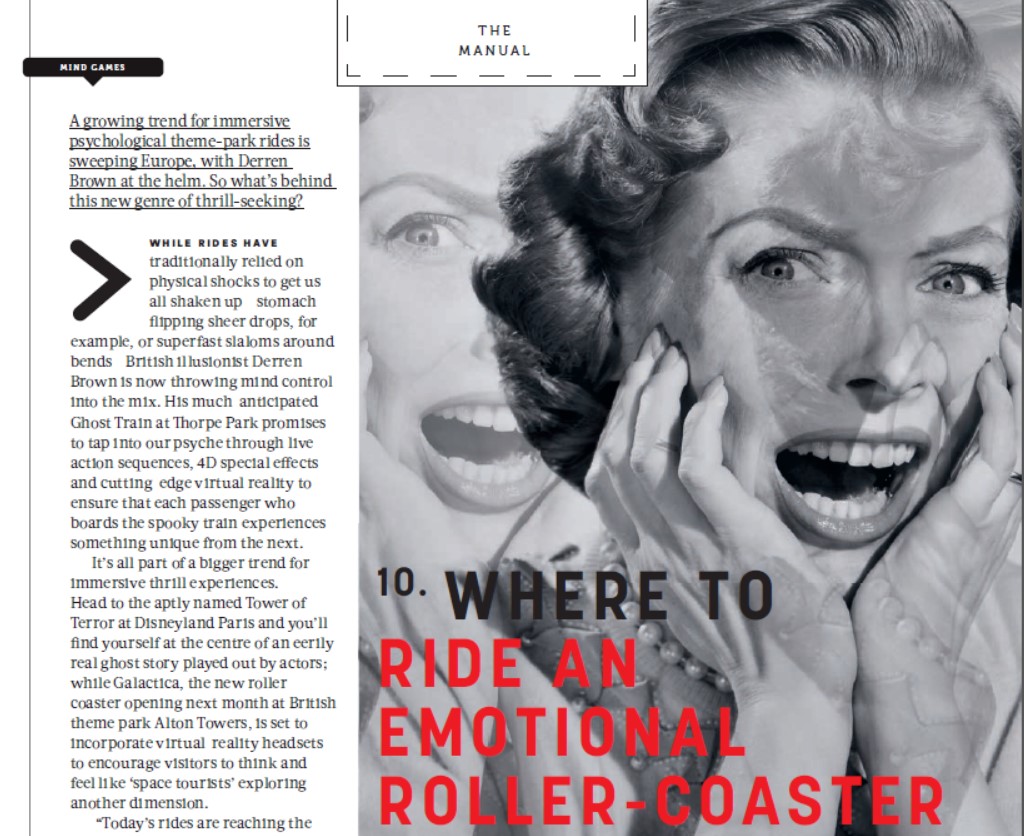While rides have traditionally relied on physical shocks to get us all shaken up – stomach-flipping sheer drops, for example, or superfast slaloms around bends – British illusionist Derren Brown is now throwing mind control into the mix. His much-anticipated Ghost Train at Thorpe Park promises to tap into our psyche through live-action sequences, 4D special effects and cutting-edge virtual reality to ensure that each passenger who boards the spooky train experiences something unique from the next.
It’s all part of a bigger trend for immersive thrill experiences. Head to the aptly named Tower of Terror at Disneyland Paris and you’ll find yourself at the centre of an eerily real ghost story played out by actors; while Galactica, the new roller-coaster opening next month at British theme park Alton Towers, is set to incorporate virtual-reality headsets to encourage visitors to think and feel like ‘space tourists’ exploring another dimension.
“Today’s rides are reaching the extremes of what we can handle physically,” says Brendan Walker, the world’s only professional ‘thrill engineer’. “We can’t go through tighter roller-coaster loops, because we’ll black out, and there’s only so much we can be thrown around before we start feeling nauseous.” So the next natural step? Venturing into the murky territory of the mind.
In the early 20th century, when amusement parks first boomed, American author HP Lovecraft said that “the oldest and strongest kind of fear is fear of the unknown” and these latest rides use ground-breaking technology to exploit this. “Cleverly done, the anxieties people have can be used to great effect,” says Walker. “If anyone’s going to do it, it’s Derren. He’s a great showman and because we have such confidence in him, we think: ‘Clearly the reason I’m being tortured right now is because something amazing is about to happen’.” It requires a great deal of trust to surrender yourself to it.
Where, then, can theme-park ride designers go from here? Walker believes that, in future, rides could be tailored to each individual’s capacity to endure scary situations, by slowing down or becoming smoother if an overload of anxiety is registered, for example. “This could ensure that people don’t get more than they bargained for and, ultimately, rides continue to deliver an enjoyable, rather than disturbing experience.”
